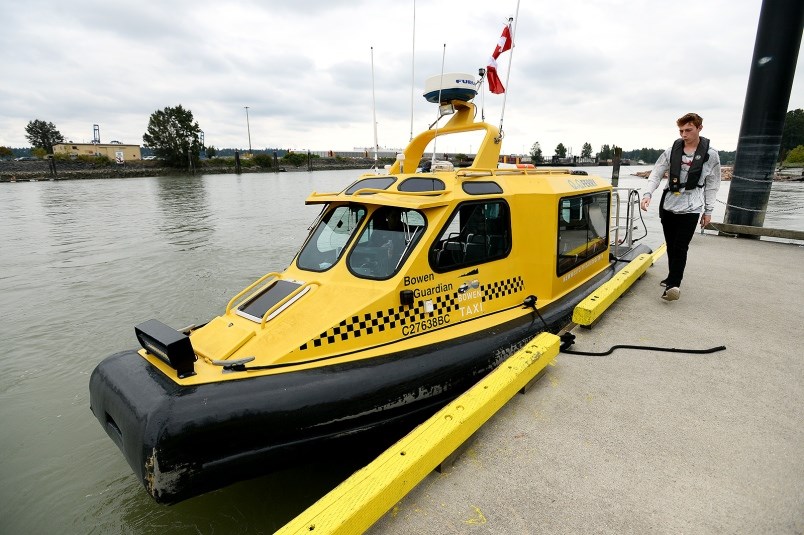Metro Vancouver’s climate action committee wants TransLink to do a feasibility study for an electric ferry service on the Fraser River that could include Coquitlam and Port Coquitlam.
The regional district committee took the action after receiving a staff report last week. The committee also forwarded the concept to Metro’s transportation committee for consideration.
The report said an electric river bus service has environmental benefits. It noted because the ferries would operate on short, consistent routes, the planning and installation of charging infrastructure would be simplified. And while they might be more expensive at the outset, there may be lower maintenance and fuel costs.
According to the report an all-electric ferry service is being planned in Ontario and it noted B.C. recently ordered some hybrid-electric ferries.
“It’s a really great idea that we should take a deep dive into,” said Port Coquitlam Coun, Laura Dupont, who sits on the committee, in an interview with The Tri-City News.
Similar services are in use around the world as an alternative to traditional diesel-powered vessels. Ferry service is also an important commuting component in waterfront cities such as New York, San Francisco and Auckland, N.Z.
“It’s an idea that has cropped up over the years but I think the time is ripe,” said committee chair Adrienne Carr, a Green Party city councillor in Vancouver.
While Metro Vancouver may desire a river bus to service many of its municipalities, it would likely fall under TransLink’s jurisdiction. The report would like the regional transportation authority to consider including it in its Transport 2050 master plan.
“It is always a challenge in terms of adding things to a vision,” Carr said. “There’s been a lot of to and fro, so it’s not easy to add something in. It may be that it gets added in when we realize we need to up the ante to getting to the electric stage.”
Carr said easing road congestion could help sell the idea to the mayors. “It might not be as big a battle because it might have that appeal.”
TransLink delivers projects based on regional priority and it is too early to say which suggestions will be prioritized in Transport 2050, said TransLink spokesperson Dan Mountain in an email. The next round of engagement for Transport 2050 will be in spring 2020, with the results released later in the year.
Any feasibility study, said Metro Vancouver’s report, would have to include determining which destinations would benefit from it, the availability of the technology, locations for docking and charging, the cost and environmental impact compared to other options, the suitability of connecting to the existing transit network, the ability of the service to reduce road congestion and the employment opportunities that could be generated by it.
But the report said since so much of the riverfront is already taken up for other uses, it would be difficult to find appropriate places along the river to locate docks and charging stations.
Dupont said she doesn’t believe that would be a problem in PoCo or Coquitlam.
“We have been a very resource-based infrastructure [along the river] and, as those things change and those resources start to decline. The face of riverfronts and our community are changing,” Dupont said.
Another challenge, she said, is ensuring the vessels are fast enough and can handle the currents especially, in the spring when the freshet brings high water levels and debris.
“It’s a mighty river, the Fraser,” she said.
Both Carr and Dupont said public-private partnerships or deals with First Nations could help make an electric river bus service more feasible.
“I’m intrigued with the idea to have First Nations involvement,” Dupont said. “They know the river better than anyone knows the river. It’s in their blood, literally.
“It’s an intriguing idea for that reason, it’s an intriguing idea for tourism, it’s an intriguing idea for easing congestion on our roads. There’s lots of reasons.”
The lone passenger-only ferry service currently on the Fraser is one operated under contract to the city of New Westminster between its quay and Queensborough but it is not electric.
Metro's climate action committee also called on the province to put an electric vessel on the route between Barnston Island and Surrey.



